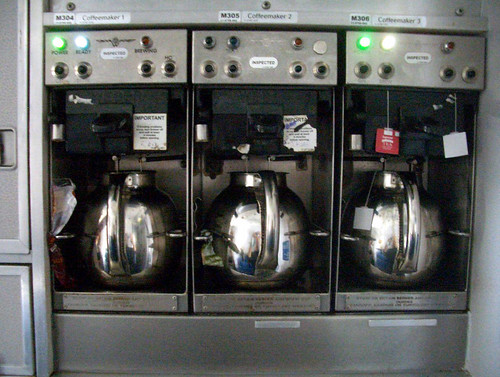
Does your organisation currently have an IC technology project running that aims to improve the supply chain? Odds are that it has, or has had one in the recent past, or is planning one for the near future – that is, if your organisation is anything bigger than a couple of volunteers with a budget of a couple of hundreds of thousands of euros. And you should: continuous improvement of your supply chain is a necessity, and ICT is indispensable to do so.
Or rather, you shouldn’t.
Too often, ICT is implemented as a stand-alone solution for supply line problems. ICT is indispensable to support any but the most trivial of supply lines, but rarely is it a solution by itself for whatever are your supply chain woes.
Does this sound like a truism to you? In fact, it does to me – but I have seen several of these ICT-as-a-panacea projects in aid logistics, so I think it is fair to say that apparently not everybody agrees. Oh, of course management of these projects will pay lip service to the idea that processes, attitudes, knowledge and training, and many other aspects will need to improve too, but in reality you see that everything concentrates on the technological solution: processes are adjusted around the technology, staff are trained in using the technology, and so on. And there we go again, in a straight line towards the next round of ‘technological innovation’.
ICT can help us to build systems that help us get the right information, at the right time, to the right people, at the right price, to make the right decisions and take the right actions. (Sounds familiar? It should.)
But: the operative word here is ‘system’. No, I am not talking about computer systems – when I say system, I refer to (ahem) ’a coordinated whole of human, physical and organisational resources (including procedures and structure), striving for a common goal’. In other words: your logistical department is only just part of the organisation’s logistics system (striving for logistical effectiveness and efficiency), which in its turn is part of the system that is your organisation as a whole (striving to perform whatever is its stated mandate as effectively and efficiently as possible), which in its turn… you get the idea. What is not a system is the shiny new ERP software that your director of resources has just bought after a slick demonstration; it could be part of an effective and efficient system – or it could break it.
I said it before and I will say it again: information and communications technology are indispensable to run anything but the most trivial supply lines; but it is there to serve the goal of those supply lines, and not the other way around. Technology should be part of an integrated system with more or less clearly defined goals. The systems should not be built around the technology, because that will hardly ever lead to real integration; instead technology, procedures, and people should be seen as a indispensable parts of the whole system, giving us eyes to see what is coming – I-see technology instead of IC technology.
(Image: Airborne Caffeine Delivery System by Todd Lappin. Some rights reserved.)
{



